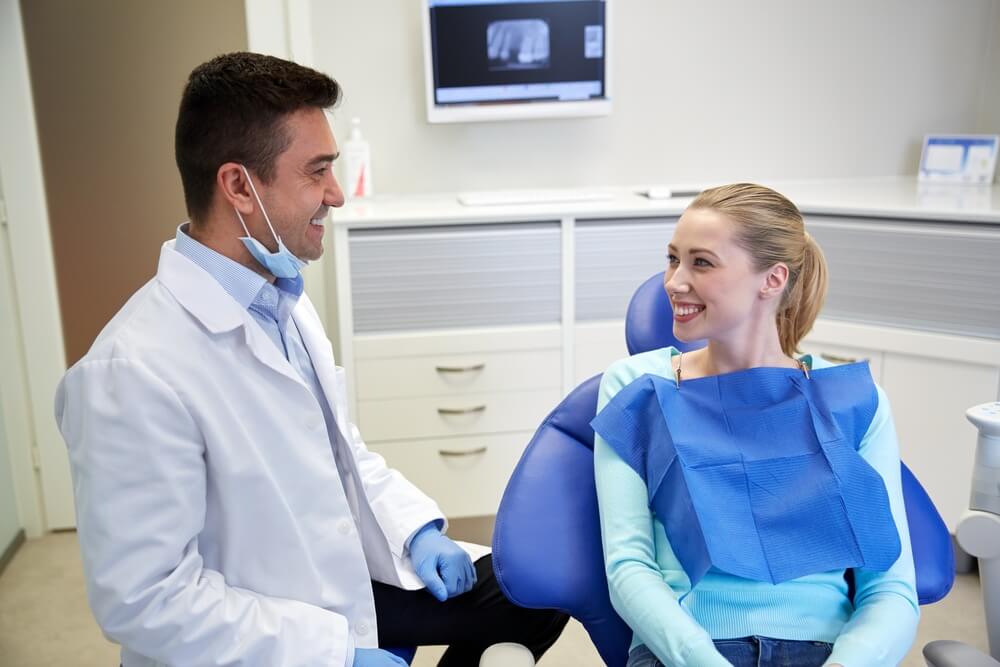Health
4 Signs That Show It’s Time To See A Dentist

Multiple factors can hinder oral hygiene, cause repetitive toothaches and cavities. Around 32.1% of Australian adults aged 15 years and over had untreated decay, says a survey from 2018. However, three in every ten people in Australia avoid seeing a dentist due to the cost. It’s because many still overlook the fact that poor dental health can cause other medical conditions and interfere with food patterns. In a city like Ryde, which has a GRP of $16.74 billion, dental treatments are usually on the affordable line. Visiting a dentist in Ryde on a regular schedule will keep a check on your overall dental health. However, there might occur instances where you will have to have an appointment with the dentists to screen or diagnose underlying problems.
Table of Contents
Understanding when to visit a dentist
According to the 2011 survey, there were more than 1 lakh elders aged above 65 in Ryde. Though dental problems are often synonymous with elders, visiting a dentist in Ryde is essential for every age group. To maintain standardised oral hygiene, you can go for regular clean-ups and floss sessions at the dentist’s place. Most dentists suggest going for a checkup once every six months.
Out of these regular sessions, one might experience a mild dental issue that can heal with some self-treatment or diet change. On the flip side, some conditions can be tricky and require immediate medical assistance to prevent further complications. This section will talk about differentiating the two scenarios. Here is a list of commonly experienced conditions, which are also signs that indicate you might have to visit a dentist at the earliest,
-
Dry mouth
When you wake up in the morning and experience your mouth being dry, it might seem like a common issue. However, in the long run, dry mouth can indicate an underlying cause or a dental condition. The primary reason can be due to moisture retention, keeping the lubrication away from the mouth. Sometimes, dry mouth can occur along with early morning fatigue. Chronic dry mouth needs to be promptly addressed because it can also cause gum diseases and other dental complications. Alternatively, if you have been experiencing a variation in your saliva’s consistency, it is high time to visit a dentist.
-
Bleeding gums
Bleeding gums can usually occur after or while brushing or flossing. Though occasional bleeding can indicate that your gums are weak, too many occurrences may indicate underlying gum disease. Always watch out for tender or swollen gums, as they can bleed anytime you exert pressure across them. Bleeding gums, when left untreated, can cause further complications and even tooth loss in later stages.
-
Spots on tooth or gums
Tooth decay can be the most complex dental disorder one can ever experience. Tooth abscesses from the infected area can even spread to the bloodstream and cause life-threatening septicemia in some cases. Tooth decay in the later phases can be extremely tricky to treat. Thus, an early diagnosis can save you from further complications. One of the most prominent symptoms of tooth decay is the appearance of white spots on the gums and around the infected tooth. Sometimes, it can even be a small blister or a pimple on the gums that will create gum disease, a cavity or decay.
-
Bad breath and toothache
Toothache is one of the most neglected signs of a possible tooth infection. Toothaches while chewing can interfere with your food style. It can indicate that the tooth might be cracked or can get misplaced. Sometimes, you might also have chronic bad breath along with toothaches. Bad breath is not just a social barrier but also indicates an infectious, dry or poorly maintained tooth requiring immediate dental care.

-

 Tech3 years ago
Tech3 years ago6 Tips to Improving E-Commerce Websites
-

 Home4 years ago
Home4 years agoAdvantages and Disadvantages of Village Life in Points
-

 Health4 years ago
Health4 years agoAdvantages and Disadvantages of Milk
-

 Travel4 years ago
Travel4 years agoAdvantages and Disadvantage of Travelling
-

 Sports2 years ago
Sports2 years agoThe benefits of playing an online live casino
-

 Tech4 years ago
Tech4 years agoEssay on Advantages and Disadvantages of Offline Shopping
-

 Tech4 years ago
Tech4 years ago10+ Advantages and Disadvantages of Mobile Phones in Points
-

 Tech4 years ago
Tech4 years ago8+ Advantages and Disadvantages of Motorcycle |Having Bike